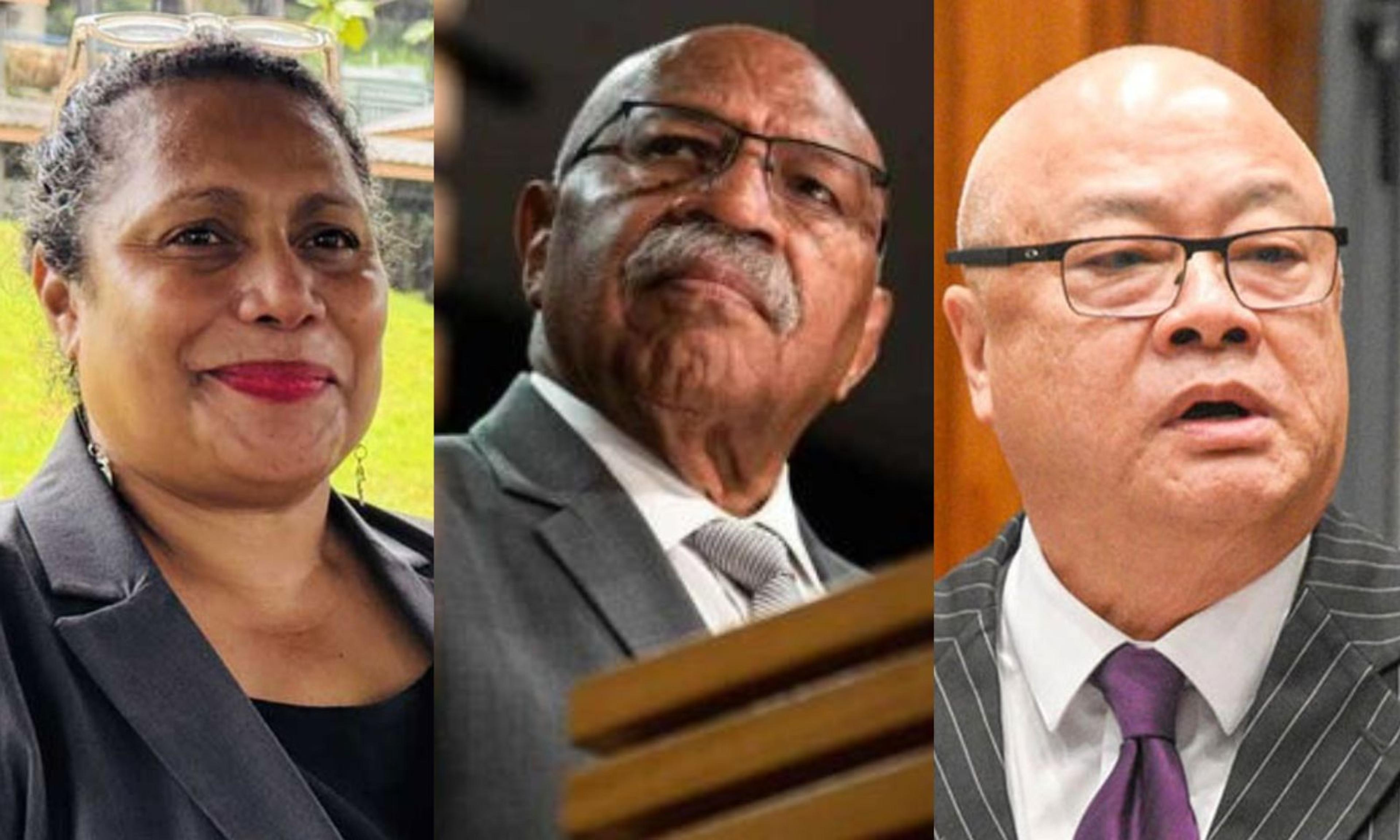

IWI co-founder Rachel Petero (centre in printed dress) pictured with the Media and Film panelists, Chelsea Winstanley (white dress), Gaby Solomona (blue dress), and Nevak Rogers (pink suit), along with Magele Sosefina Paletaoga (left in pink).
Photo/PMN News/Atutahi Potaka-Dewes
Economic summit brings Pacific women together to challenge and inspire
Indigenous women series: Ground-breaking leaders from across the world attended the week-long Indigenous Women in Industry conference.


The return of Three Strikes slammed as unjust and ineffective


Cook Islands says a misunderstanding has led to NZ freezing development funding

Leaked report reveals political manipulation in Fiji anti-corruption chief, key officials fired

The return of Three Strikes slammed as unjust and ineffective


Cook Islands says a misunderstanding has led to NZ freezing development funding
This article is part of series we are publishing this week focusing on indigenous women in New Zealand and the Pacific.
Over 50 global indigenous women gathered at an Economic Summit in Rotorua last week to engage in discussions dedicated to preserving cultural integrity, through business.
The summit was part of a week-long Indigenous Women in Industry (IWI) conference, which brought together global experts in governance, agriculture, investment and trades, climate justice, beauty, film and media, technology and education to all share their respective insights on incorporating indigenous values within their industry.
Actor and NiuFM Morning Shack radio host Gaby Solomona (Samoa, A.Samoa) took part in the media and film panel discussion with critically acclaimed filmmaker Chelsea Winstanley ONZM (Māori) and facilitated by TVNZ Chief Content Officer Nevak Rogers (Māori,Tonga).
Solomona recounted the difficulties of being a young woman of colour finding her feet in mainstream media.
“I was really naïve. I was like, ‘oh I’m gonna go to Hollywood straight away ‘cause I’m a great actor, I’m a great drama queen!’
“Then I realised really quickly that that’s not how it works ‘cause not only am I a girl, I’m a brown girl and not only am I a brown girl, I’m a dark skinned brown girl'.”
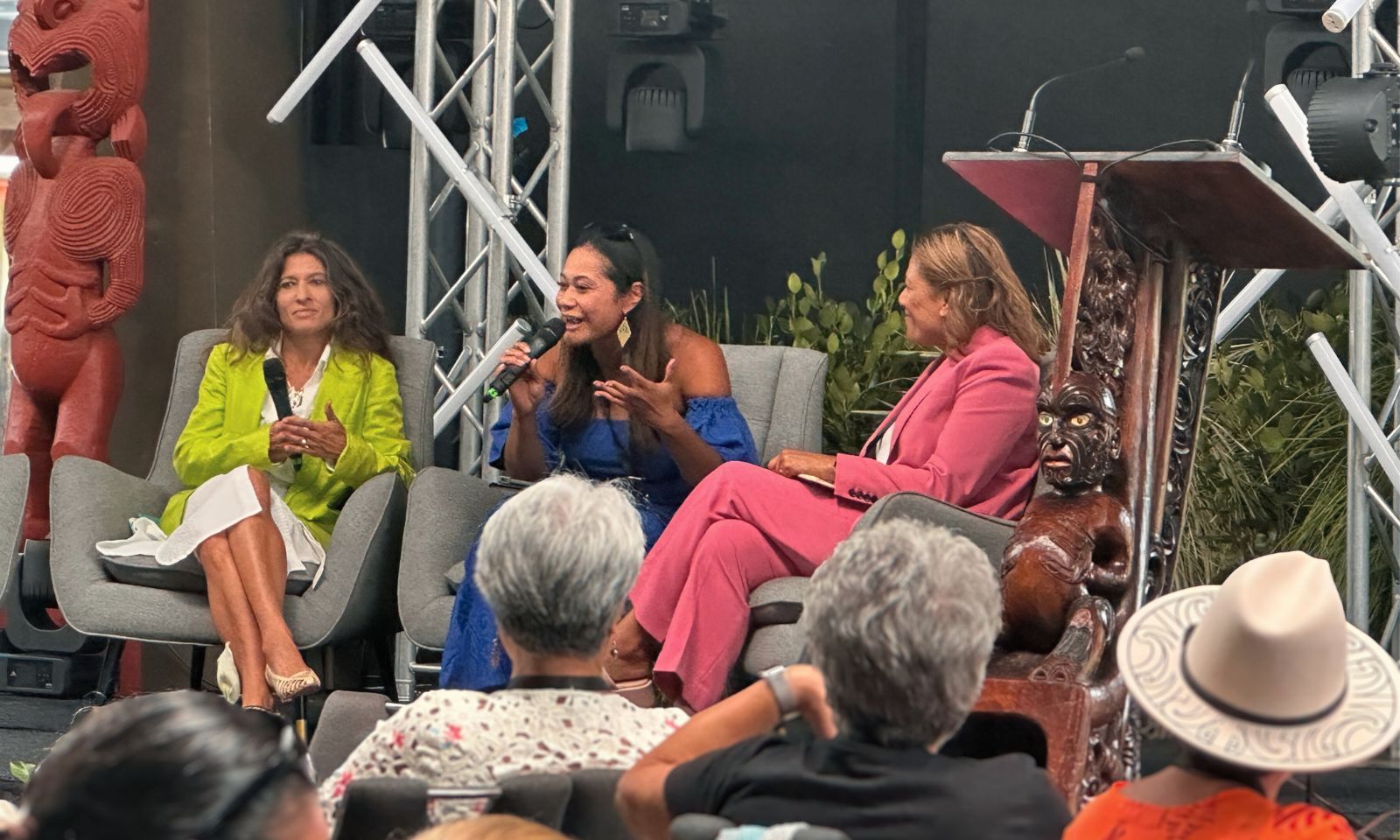
(L-R) Chelsea Winstanley, Gaby Solomona, and Nevak Rogers are taking the lead on indigenising the world through media and film. Photo/PMN News
Solomona says the counterculture media space also has its own lateral biases and hopes there can be a way forward to bridge a generational gap.
“Don’t tell me we want to tell a brown story but we don’t want to practice brown ways and the way that we do things.
“I’m speaking from a Samoan perspective, there’s a tension between the older generation and us young ones. How do we challenge and question things but with fa’aaloalo (respect).”
Throughout the week around 200 women took part in IWI, with representatives from Samoa, Papua New Guinea, New Caledonia, Australia, Canada, and the United States.
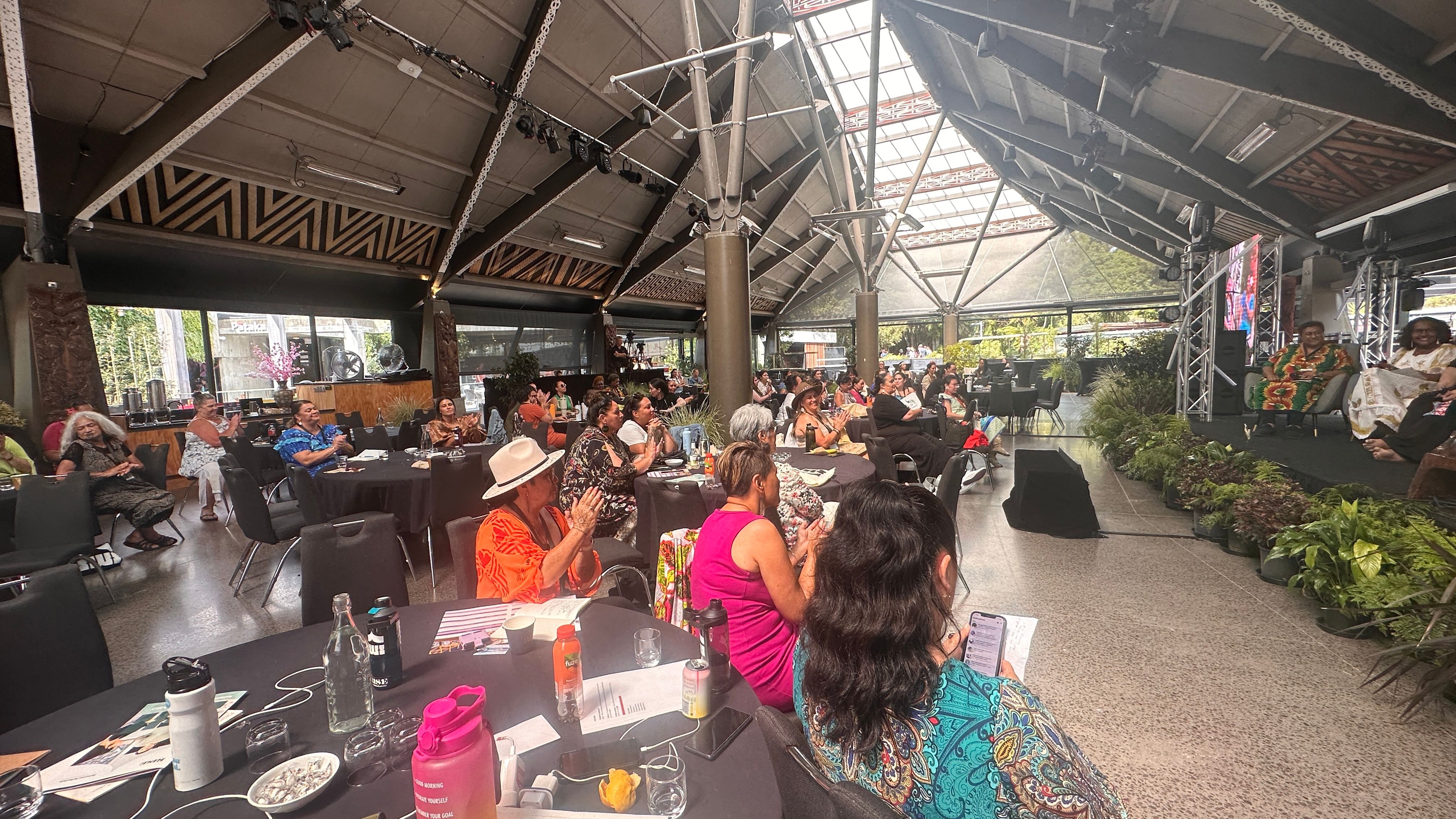
IWI held its first ever Economic Summit at the geothermal park Te Puia in Rotorua. Photo/PMN News
The Indigenous Trade Panel of Pacific and Melanesian businesswomen included IWI Ambassador to Papua New Guinea Linda Paru who spoke on the practice of bartering in the islands.
Covid-19 pandemic restrictions in 2020 saw a resurgence of traditional farming practices, bartering, and the use of tabu.
Paru founded a women's social enterprise that supports around 36,000 indigenous Papua women in business and she says bartering is an everyday way of trade for parts of Papua.
“It’s very important for us to exchange goods for goods, not only that it’s a meeting place. Every Saturday we’ll have people from the bushlands in the north come down to my people from the coast. We give them two fish for a bunch of bananas.”
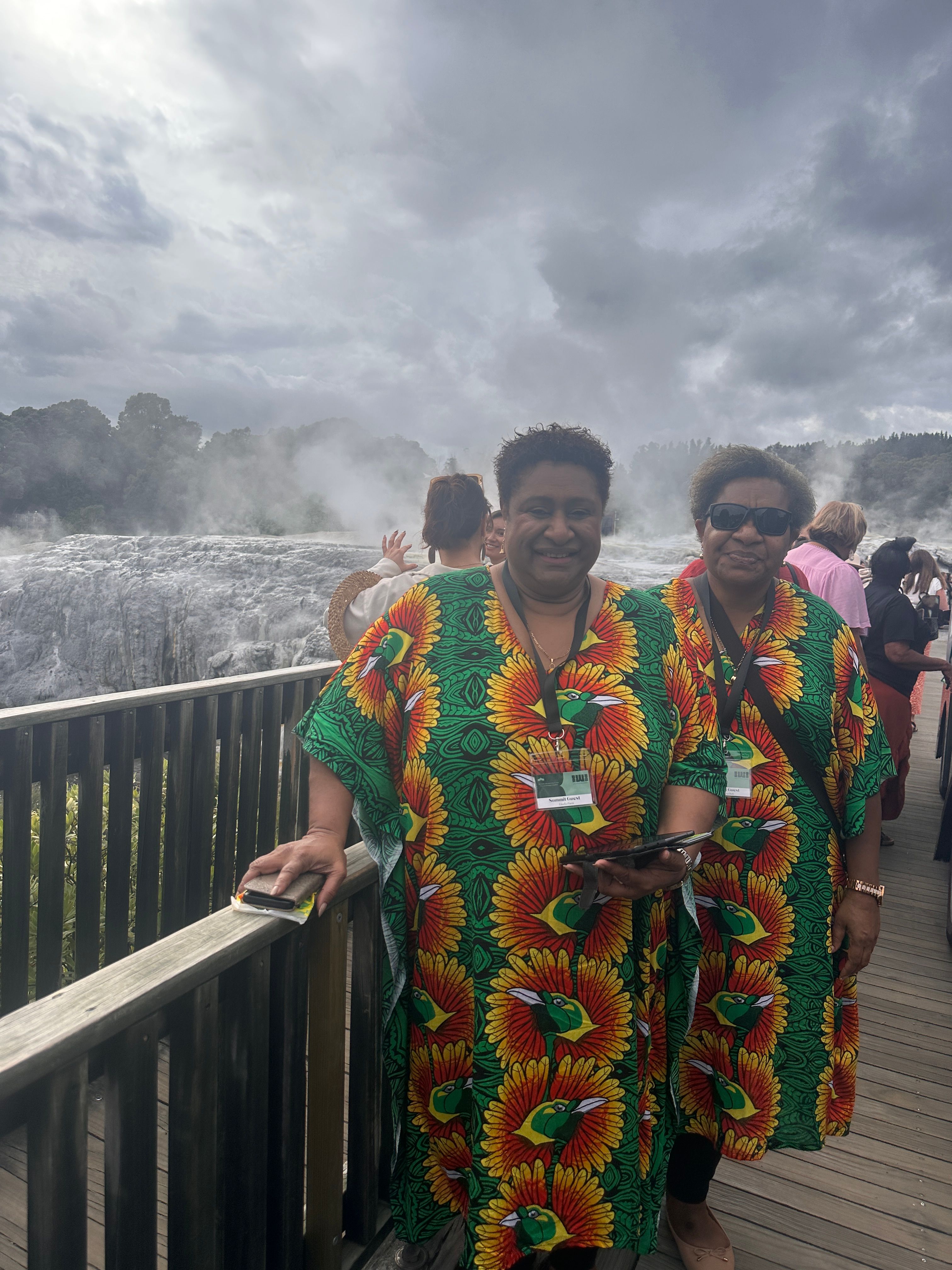
IWI Ambassador to Papua New Guinea Linda Paru (left) says the delegation will take away some great learnings from the conference. Photo/PMN News
Closing off the Economic Summit of the IWI conference was a panel discussion on climate justice with Young Ambassadors to UNICEF Nele Kalolo (Samoa, Tonga) and Ceilidh Brown (Niue, Scottish), and entrepreneur and climate activist Okalani Mariner (Samoa).
The panel’s main message was to encourage everyone to take responsibility in being an active ally to the planet and the acute awareness youth have on climate change.
Brown spoke about how engagement with youth feels like a commodity.
“Youth aren’t a tick-box. Bring us to the table and allow us to make change. Hear what we have to say because that’s our tomorrow you’re talking about.”
While Mariner shared how true climate justice needs to have a youth voice at every step.
“Indigenous people were the first stewards of land and therefore the youth of indigenous people are the future stewards of the land.
“People responsible for the destruction of the planet benefit off of our grief, so look to the youth for healing and forward planning.”
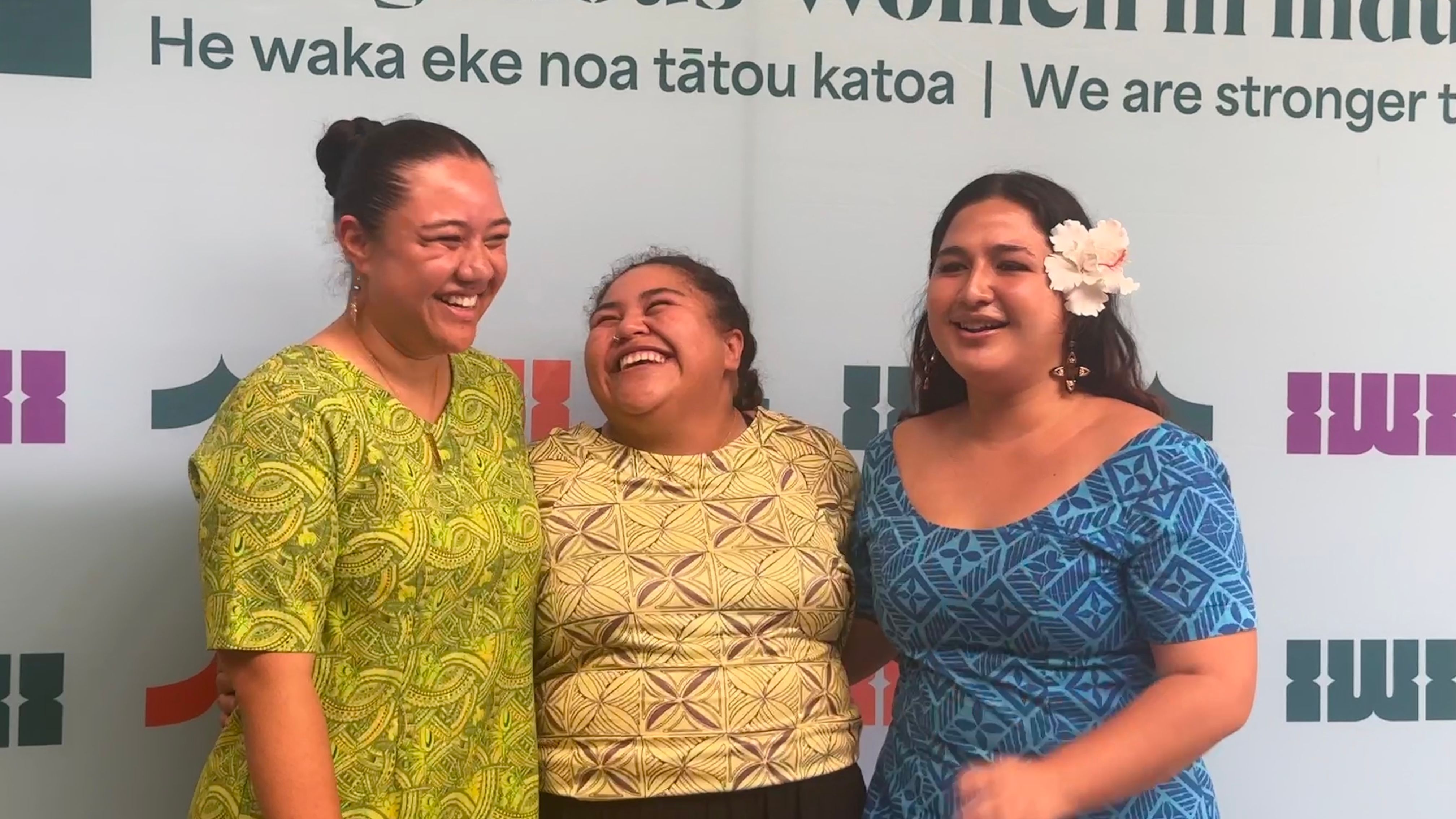
Climate Justice Panellists (L-R) Nele Kalolo, Ceilidh Brown, and Okalani Mariner. Photo/PMN News
Nele Kalolo says while great leadership can be shown at decision tables it is equally as important to look inward and self-reflect.
“The most important talanoa you can have is talanoa ifo (with yourself). If you have a cultural disconnection you can’t advocate for cultural climate change.”
The next IWI event takes place in Canada in with dates still to be released.